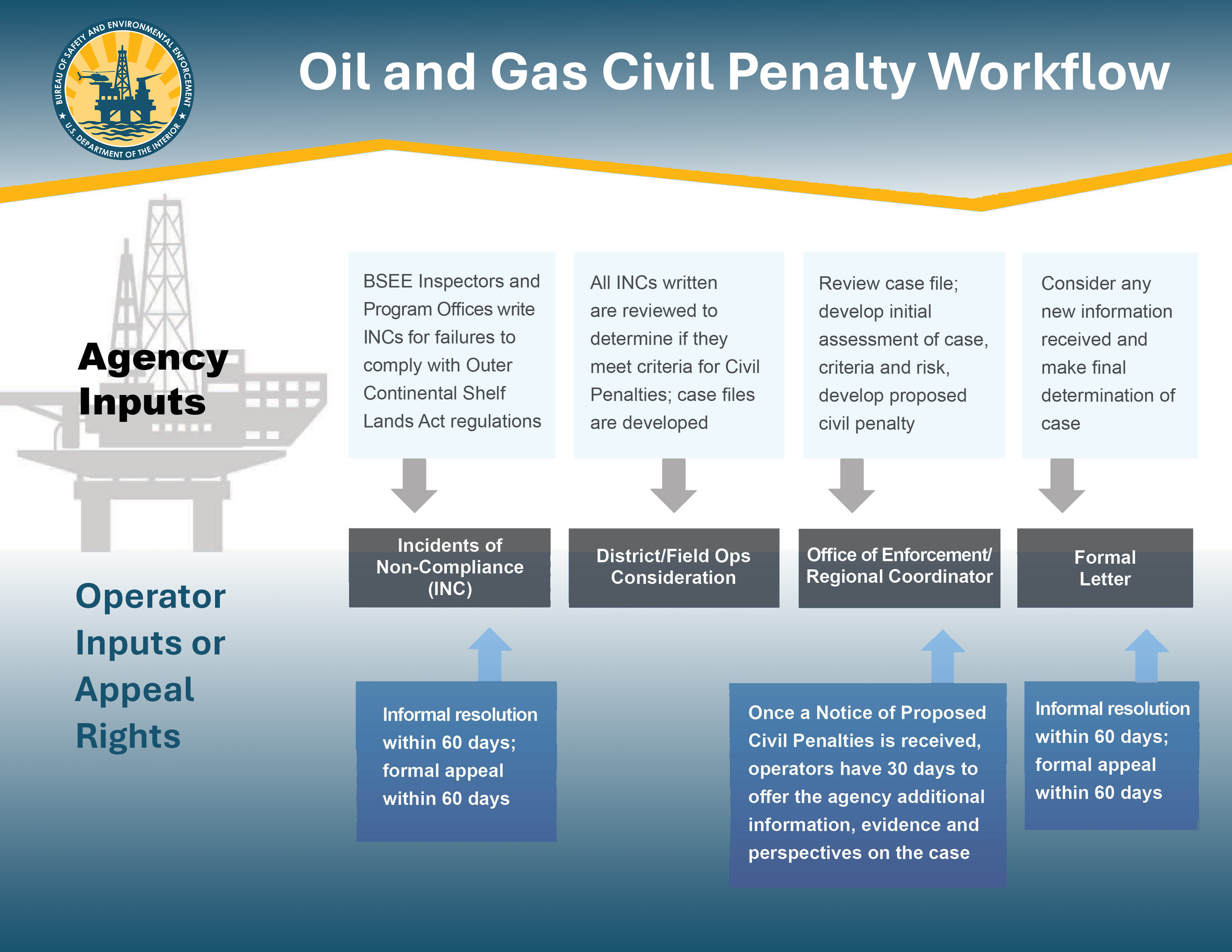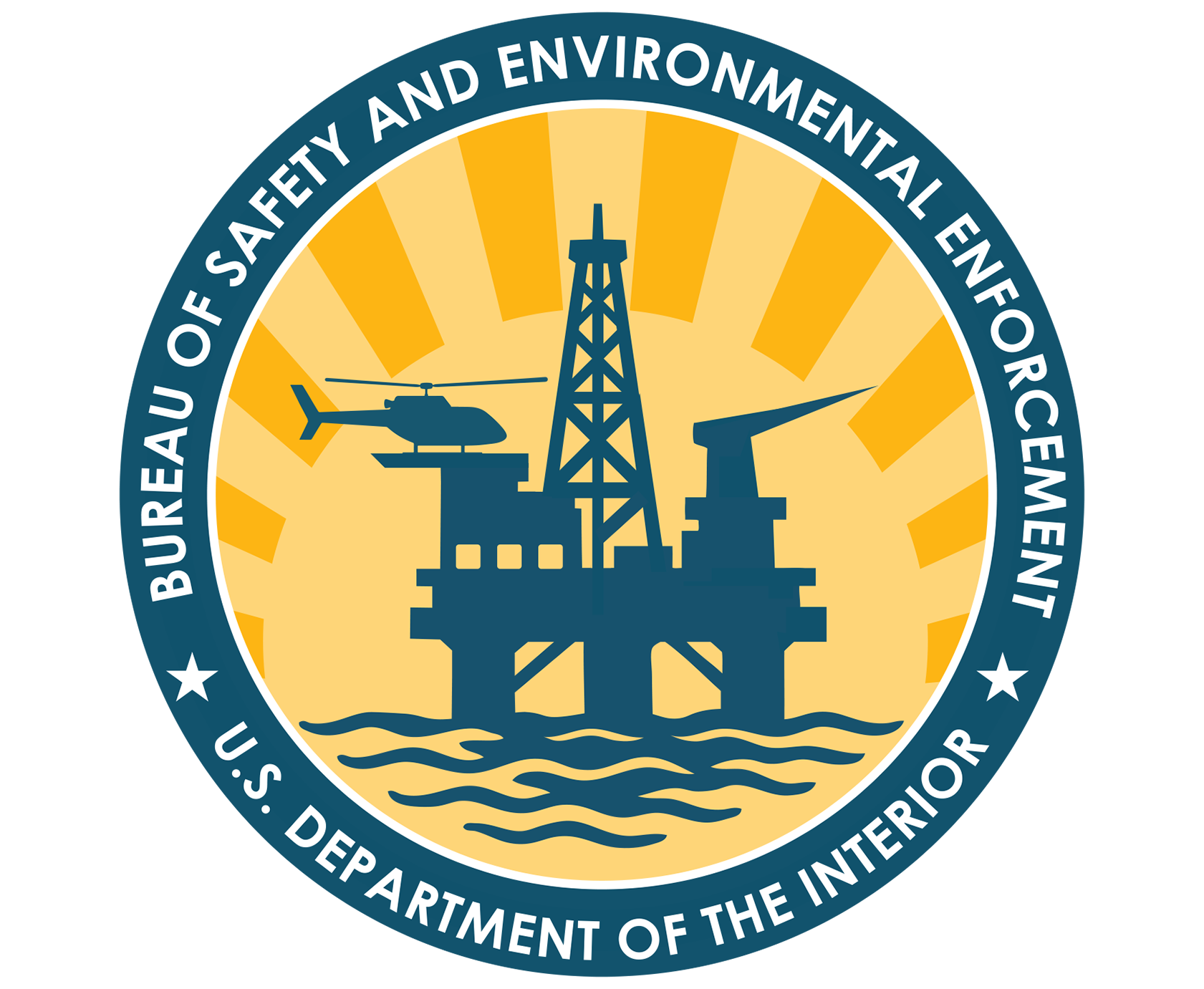Civil Penalties Process
BSEE may assess a civil penalty for violations that
- are not corrected within the period BSEE provides or
- constituted serious, irreparable, or immediate harm or damage to life, property, a mineral deposit, or the environment as described in the Outer Continental Shelf Lands Act.
Steps in the civil penalties process include:
Determining that a violation meets criteria for civil penalty. The operator may be required to pay a civil penalty for a violation if it (1) is not corrected in the timeframe provided or (2) involved harm or a threat of harm to safety or the environment as described in the Outer Continental Shelf Lands Act.
Building a case file. BSEE staff develop a case file that provides information on the violation and how it meets criteria for a civil penalty assessment.
Reviewing case documentation. A BSEE Reviewing Officer reviews the case file and requests additional information from district or regional staff as needed.
Assessing the civil penalty. The BSEE Reviewing Officer
- Calculates the amount of the civil penalty using the appropriate rate table or “matrix.” These rates are adjusted annually for inflation.
- Notifies the operator via a Notice of Proposed Civil Penalty. The letter includes the amount of the proposed penalty, information about the violation, and instructions on how to schedule a meeting, submit information, request informal resolution, or pay the penalty. The operator has 30 calendar days to take one of those actions.
- Issues a final decision letter at the end of the 30 days, or after meeting with the operator and reviewing any information submitted. The letter includes the amount and basis of the civil penalty, and instructions for payment or appeal.
Operators may request informal resolution of a case with BSEE and/or file a formal appeal with the Interior Board of Land Appeals. Read more about these processes under the Appeals tab here.
See the graphic below for more information about this process.

Data
This table provides information on civil penalties that were paid and closed in specific fiscal years. The summaries do not include cases that operators have appealed or that BSEE is developing.
